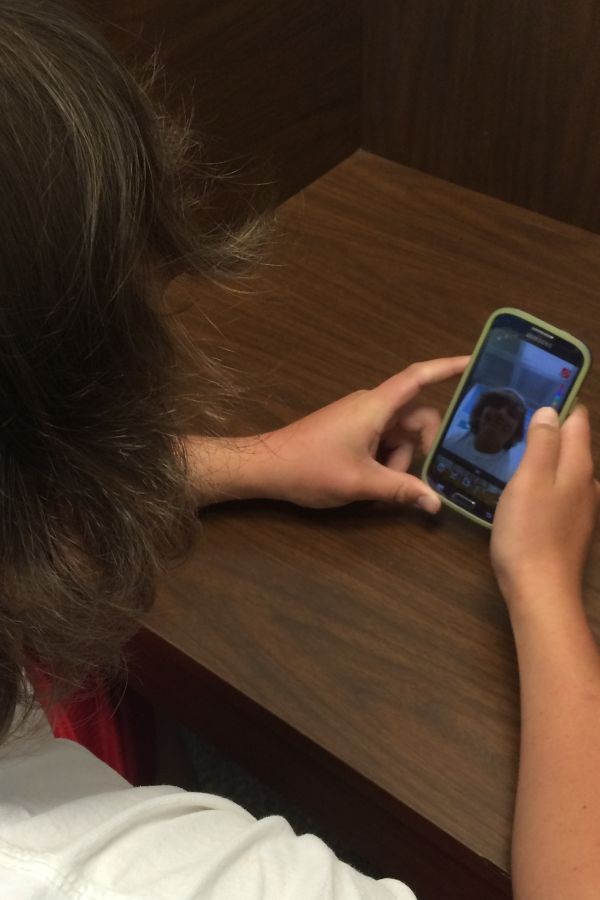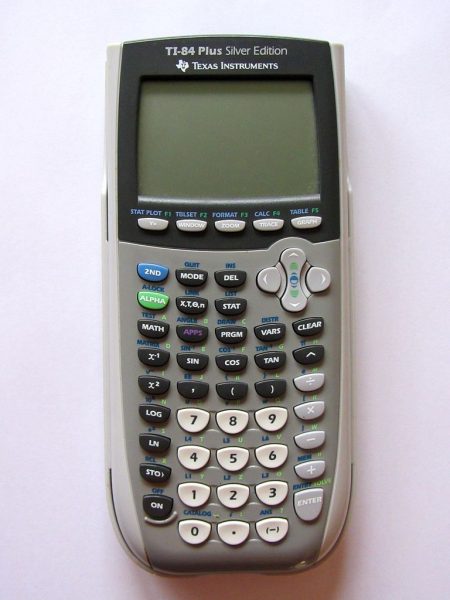Are Cell Phones a Distraction or a School Tool?
Seth Miller (9) takes a selfie in his journalism class.
April 20, 2015
Teenagers and cell phones are becoming two peas in a pod in today’s era. Most people would say that teens have their phones “glued” to their hands. However, these seemingly essential devices are starting to distract students from what they actually come to school for, which is learning.
Today, the Anoka Hennepin District’s phone policy is in short up to the discretion of the teacher or administrator in the classroom. Students are allowed to make calls and communicate using their devices during passing time and lunch, as well as before and after school. They cannot take pictures or videos unless you have the permission of a teacher. It seems like a good policy, but does everyone think so?
We talked to Nancy Hall, an assistant principal at our school. She said that only four years ago, the policy was no cell phones whatsoever. They could not be out from the first bell at 7:40 to the last bell at 2:20. Yet, this is not the same policy we follow today.
This so-called transition of the cell phone policy sort of just happened. There was not a specific meeting where there were specific policy changes regarding cell phones. Teachers became more lenient with the use of cellphones in class, looking at them more as a resource rather than what could potentially become a lingering problem.
Teachers opinions on the policy are stretched from not allowing them out on the desk to having free time just to go on cellular devices. Seth Miller, a freshman at Blaine High School, said that “one of the teachers has a game where she takes your phone, puts your name in a bag, and draws a name from that bag at the end of the week.” If you happen to be the lucky one whose name gets drawn, you will have to serve a detention.
Science teacher, Kevin Overgaard, said that he is completely against cell phone use in the classroom. “It has been the biggest behavioral problem over the past four years” he stated. Overgaard asked his class about their thoughts on the topic, saying if the roles were reversed would they as the teacher be okay with their students failing because of being focused on their electronics rather than their actual learning.
Students had many things to say about cell phones and how they feel about the policy. Overall, the feedback was across the board with some saying it was laid back, just fine, or too strict. Yet, there was one thing everyone we interviewed seemed to be able to agree on, the fact that as technology has improved, and electronic devices have become way more distracting.
When faced with this question, student Dominic Ramczyk said, “some people are just addicted to their phones and they can’t put it down”. Junior, Sydney Seim added, “cell phones distract us from being able to solely focus on learning.”
Students and administration both believe that cell phones are a distraction to learning, and that they should mainly be used, in school, to further education by researching, checking grades, and participating in online activities. Going on Twitter, Snapchat, and Facebook does not fall into those categories. There really is no policy set in stone, but if there was based off of both student and staff opinions it might look a little like this:
“Ideal Cell Phone Policy”
- It’s okay to glance at your phone if you get a message from a parent. It is unreasonable to think parents would rather call the school when they can shoot a text to their child.
- You can bring your phone to class and have it out on the desk, but no constant use of it without teachers approval.
- When you’re waiting for people to finish a test, or “shifting gears” in class you can go/check your phone. Listening to music is alright too, as long as it’s not a distraction
- If a teacher sees the phone is becoming a distraction to them on a daily basis, they should have a talk with that student in private, instead of calling them out in front of the class.












